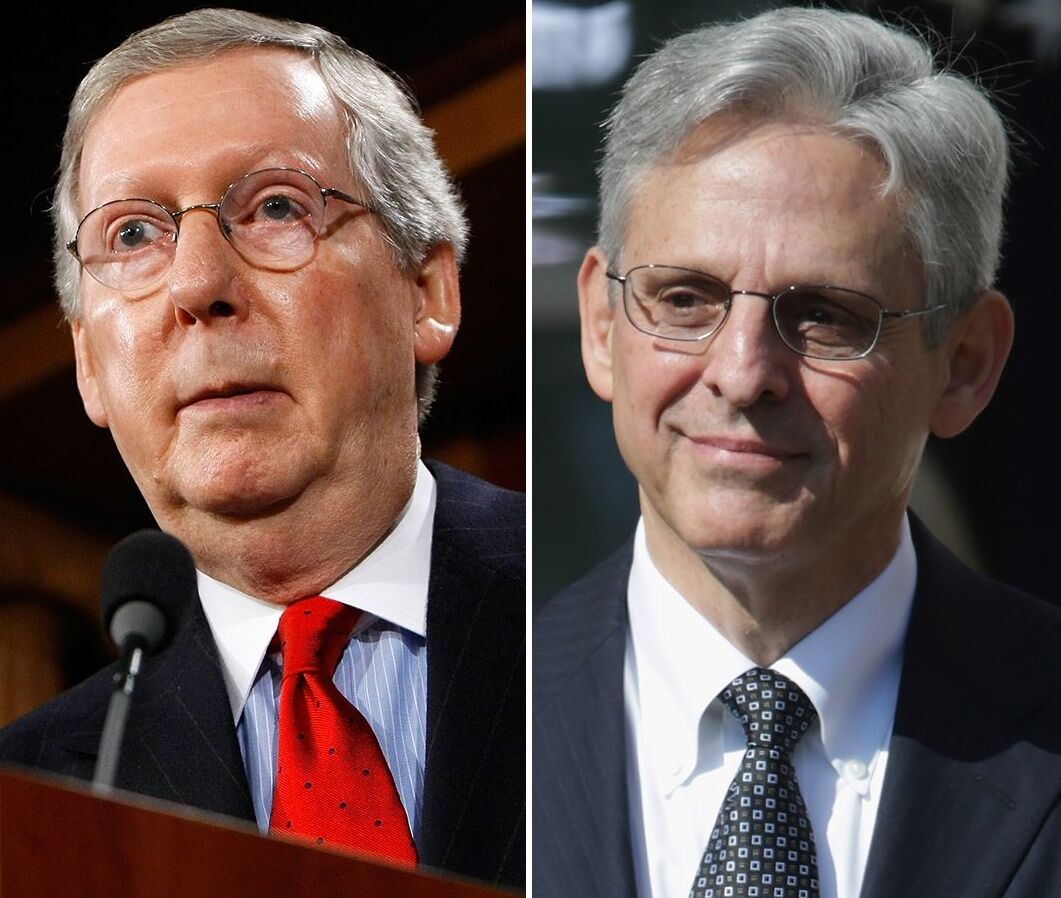
McConnell: Republican Court Packing
Senate Majority Leader Mitch McConnell (R-KY) blocked Merrick Garland’s nomination to the Supreme Court using a line of thinking that he quickly abandoned when he had the opportunity to rush through the confirmation of Amy Coney Barrett four years later. These two events, along with two years spent obstructing President Obama’s nominees for the federal judiciary, reflected a strategy that ignored long-established senate norms and successfully packed the courts with Federalist Society candidates.
Ever since Lewis Powell wrote in his famous memo that “the judiciary may be the most important instrument for social, economic, and political change”, control of the judiciary had been a priority of the GOP. Already the party’s efforts had borne fruit: With Federal Society favorites Scalia, Thomas, Alito, and Roberts forming a solid originalist core, the Court had delivered decisions on campaign financing (Citizens United) and voting rights (Shelby) that the party had long sought.
In McConnell, Republicans may have found their Senate equivalent to Newt Gingrich: As described by the BBC, he is someone without principles whose tactics were effective and embraced by those around him, though the man himself was not well-liked by the public. When Barack Obama was elected, McConnell made it his personal mission to undermine the new president, and just before the midterm elections, he famously declared he would make Obama a one-term president (though he did not succeed). Like Gingrich, his priorities put party over country and made him a Tea Partier even before any Tea Party candidate had been elected.
Regarding his effectiveness at blocking Obama’s nominees during the president’s last two years and transforming the federal courts with rapid confirmations under Trump, McConnell told Marc Thiessen of the Washington Post it was “entirely premeditated”.
McConnell allowed just 28% of Obama’s nominees to be confirmed in his last two years, as compared to 80% under Ronald Reagan during the same period of his presidency and between 65% and 69% for George H.W. Bush, Bill Clinton, and George W. Bush.
One nomination that McConnell stopped: Myra Selby, an Indiana lawyer who Obama nominated to the Court of Appeals for the Seventh Circuit. In his four years in office, Trump appointed 226 federal judges – more than two-thirds the number appointed by Obama in his eight years. Included in those totals are three Supreme Court justices – one of whom, Amy Coney Barrett, Trump had earlier named to the seat that Obama had intended for Selby.
According to the Pew Research Center, 54 appellate court judges were appointed under Trump to Obama’s 55, despite Trump being a one-term president. Pew credits Trump with flipping several appeals courts from majority Democrat to majority Republican.
Too often the media and even many Democrats give Trump the credit for such a radical takeover of the judiciary. But it was McConnell who made it happen, slithering mostly unseen like a snake through the tall grass of the political swamp that some say is the nation’s capital.

